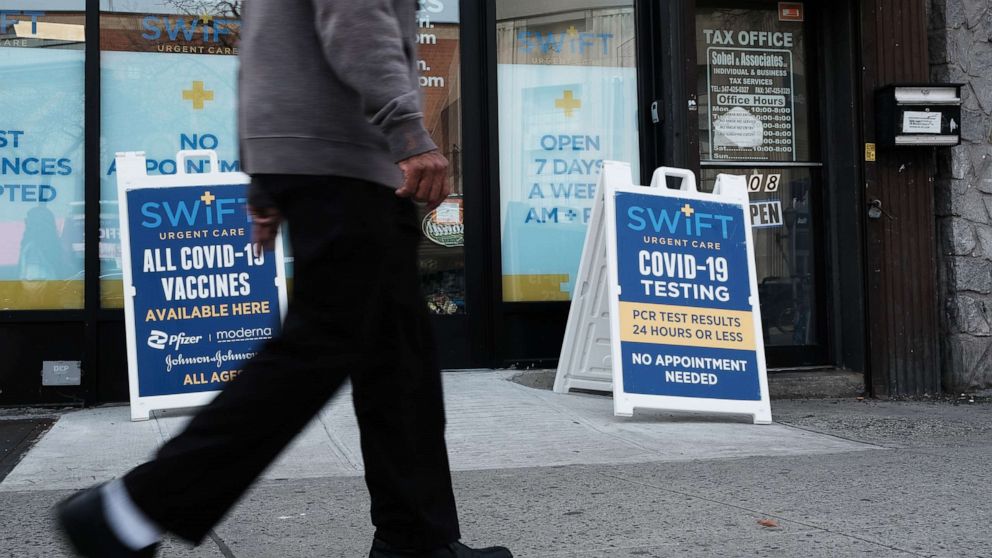Most people who have been infected with COVID-19 in the U.S. in the past couple of months likely had the BA.2 or BA.2.12.1 variant, both lineages of the original omicron strain of SARS-CoV-2. Now, BA.4 and BA.5 are here, and they’re starting to make up a larger proportion of U.S. cases.
So if someone was recently infected with a BA.2 lineage, are they mostly protected against reinfection with BA.4 or BA.5?
Probably not, infectious disease experts say.
“It’s expected that there’s probably not much cross-protection between them,” Amesh Adalja, MD, an infectious disease physician at the Johns Hopkins Center for Health Security in Baltimore, told MedPage Today.
Adalja said it essentially comes down to the number and type of mutations in the receptor binding domain of the spike protein. There’s an “abundance” of important mutations, he said, which doesn’t bode well for protection against reinfection.
“That’s what you expect with this viral family,” Adalja said. “The virus is going to be able to continue to evolve to reinfect us at will.”

A COVID-19 testing and vaccination site is open on a Brooklyn street, April 18, 2022, in New York.
Spencer Platt/Getty Images
James Lawler, MD, MPH, of the University of Nebraska Medical Center’s Global Center for Health Security in Omaha, said predicting reinfection with BA.4 or BA.5 after BA.2 is “mostly educated guesses at this point,” but there are “some historical data, data from epidemiological studies, and lab studies of neutralizing antibodies” that help inform what will happen with these two new variants.
It’s unlikely that someone who was recently infected by a BA.2 lineage will be reinfected with that lineage, Lawler said. “Those antibody studies seem to be pretty consistent. We don’t have great correlation of immunity between antibody levels and protection, but as a general rule, studies have shown that high titers of neutralizing antibodies generally predict higher levels of protection.”
Lawler said it’s “quite likely and highly predictable that people who were infected with BA.2 will be susceptible to infection with BA.4 or BA.5, and that susceptibility will grow as time goes on, as you get further away from your prior infection.”
Adalja agreed that reinfection with BA.4 or BA.5 likely will be dependent on time since last infection — though the durability of protection may be getting shorter, he noted.
Earlier in the pandemic, he said, there were “several months where it was unlikely you’d be reinfected. Then omicron occurred and people who had delta recently were able to get omicron within weeks of recovery, and the same is happening now.”
“It depends on the variant,” he said. Protection against reinfection “would be expected to be months if there are no immune-evasive changes. Now, it’s probably a matter of weeks to a month.”
He cautioned that there are no definitive studies to pin down the durability of immunity after infection with the BA.2 lineages, and it “probably varies from person to person” — by age and by the type of immunity, whether it’s “natural,” hybrid, or vaccine-induced immunity, for instance.
What about getting reinfected with BA.5 after recovering from BA.4, or vice versa? While there are even fewer data to help answer that question, Adalja noted that BA.4 and BA.5 share some key mutations, and they’re “more related to each other than they are to the other Omicron sublineages,” so there may be less of a chance of reinfection.
Lawler said the differences in the variants within the Omicron lineage are vast, and that some experts argue they should be designated with their own Greek letters.
“BA.2 is as different from BA.1 as delta was from Alpha … in terms of the number and types of mutations,” Lawler said. “I think they’re different enough that we need to be treating them as if they’re completely distinct variants.”
Substantial genetic changes in SARS-CoV-2 shouldn’t come as a surprise, Adalja said, because that’s just how coronaviruses behave. The key is being able to face new variants with the best possible protection, including vaccination, boosters, and antivirals.
“In general, we should expect reinfection,” he said. “It’s really about making sure reinfections are mild.”

